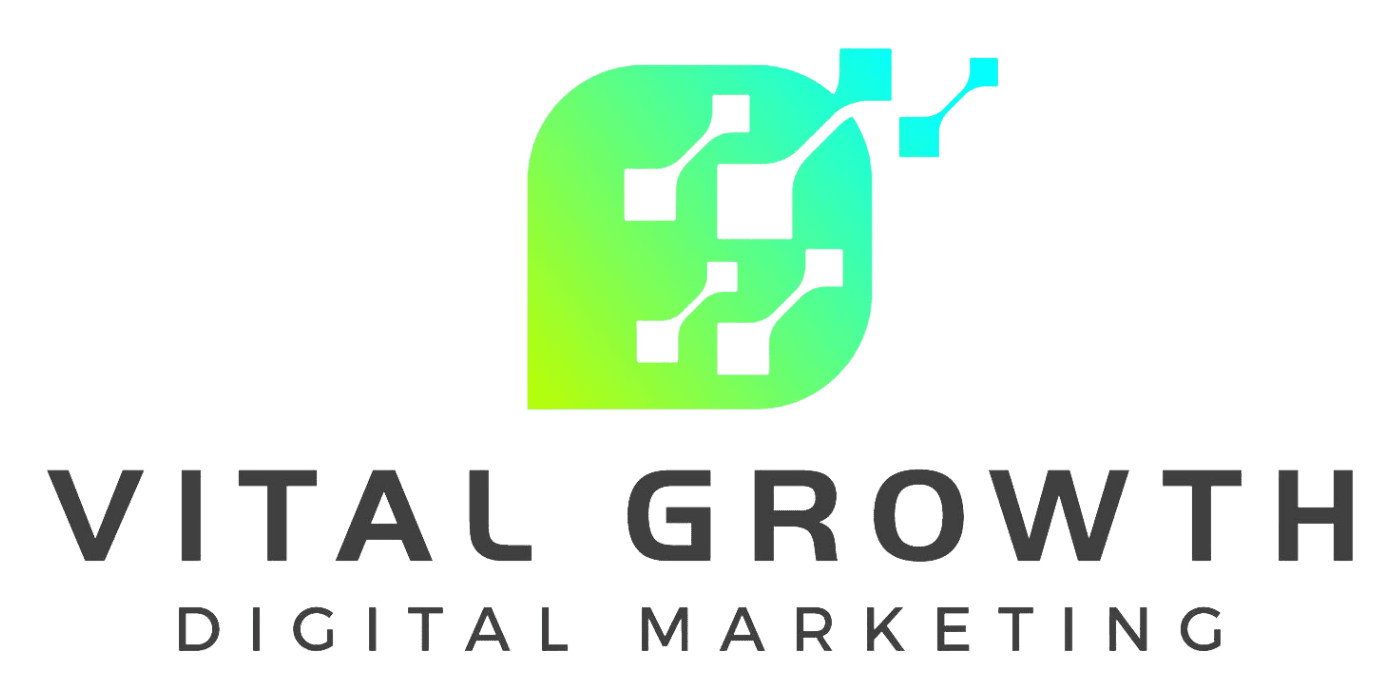Topical authority SEO is a major asset for any online business striving to outperform competitors in organic search. This blog post serves as a guide, leading you through the process of building and leveraging topical authority in search engine optimization.
We will explore the role of topical authority within the broader SEO landscape. The importance of understanding user intent and the power of keyword mastery will be discussed, along with the impact of content depth and quality on your SEO efforts.
Beyond the basics, we’ll also introduce advanced techniques like Natural Language Processing (NLP) and meta-tagging. These powerful tools can significantly enhance your content strategy.
By the end of this post, you’ll have a robust understanding of how to craft content that resonates with both search engines and users, ultimately driving your online success.
Topical Authority SEO Key Takeaways
- Topical authority is important to SEO success, influencing trustworthiness, search engine rankings, greater visibility, and increased user engagement..
- Building topical authority involves understanding user intent, creating a content strategy that includes topic clusters, pillar pages, internal linking, and mastering keywords.
- Advanced techniques like Natural Language Processing (NLP) and meta-tagging can enhance your content comprehension and retrieval, bolstering your SEO efforts.
- Measuring the impact of these efforts is important, with metrics like organic traffic, organic rankings, and user engagement providing valuable insights.
- Recognizing the role of user intent in establishing topical authority is extremely important.
- Crafting a robust content strategy, utilizing pillar pages, and internal linking are key to building topical authority.
- Mastering keyword research and usage is important for establishing topical authority.
- Achieving quality and depth in topical content is necessary for surpassing search intent.
- Utilizing studies and data can enhance the authoritativeness of your content.
- Employing advanced techniques like NLP and meta-tagging can further strengthen topical authority.
What Is Topical Authority?
Topical authority is a metric used to assess a website’s proficiency in a particular subject, which in turn can impact search engine rankings and visibility.
Understanding the role of topical authority in building EEAT, or experience, expertise, authoritativeness, and trustworthiness in a specific subject is a major factor in how to build topical authority.
Topical authority is established by:
- Analyzing the quality and relevance of the content provided
- The number of logical backlinks from other authoritative websites
- The level of user engagement with that content
- Having complete coverage of a topic with proven statistics and quickly answering any question
The following sections will provide a detailed analysis of the difference between topical and domain authority, along with the impact of user intent on establishing topical authority.
The Distinction Between Topical and Domain Authority
While topical authority focuses on expertise in a specific subject, domain authority evaluates a website’s overall reputation and backlink profile. Domain Authority is a metric used to measure a website’s strength in search engine results pages, with a score ranging from 1 to 100. Achieving topical authority can have a positive effect on domain authority by positioning a website as a reliable and knowledgeable source on a particular subject.
To measure topical authority, one must consider factors such as the quality and relevance of the content, the number and quality of backlinks, and the overall reputation of the website in the industry.
On your journey to create topical authority, its important to know that domain authority can be faked. Topical authority, on the other hand, is much harder to fake. It takes hard work to achieve strong topical authority.
Including pertinent keywords into your content also plays a significant role in building topical authority and enhancing search engine rankings, as well as ensuring topical relevance.
The Role of User Intent to Establish Topical Authority
User intent plays a significant role in establishing topical authority, as content must align with users’ expectations and search queries to be considered authoritative.
The “Do, Know, Go” theory clarifies how search engine algorithms can identify both standard and subtle interpretations of a user’s query when they search on a search engine.
By understanding user intent, SEO professionals and website owners can customize their content and optimize their websites to address the needs and desires of users.
Comprehending user intent is important in boosting topical authority, as it allows the content to be customized according to the preferences and requirements of the target audience. By creating content that aligns with what users are searching for, organic traffic can be attracted, user engagement increased, and overall topical authority heightened.
Consequently, this will establish the website as an authoritative source in the specific topic or industry.
Crafting a Robust Content Strategy for Topical Authority
Your content marketing strategy plays a significant role in establishing topical authority and enhancing search engine rankings.
Crafting such a strategy involves:
- A deep understanding of topic clusters
- The creation of pillar pages as foundations of topical expertise
- The power of internal linking in content networks
- Creating in depth content so almost anyone can understand it
The following subsections will highlight the significance of pillar pages and internal linking in the construction of topical authority.
Pillar Pages as Foundations of Topical Expertise
Pillar pages serve as the foundation for topical expertise, providing in-depth coverage of core topics and supporting related subtopics. They act as the cornerstone of a content strategy, offering a comprehensive overview of a specific topic and linking out to more specific subtopics.
Creating high-quality authoritative content on one topic can help to establish trust and authority with search engines, resulting in higher rankings in search results, increased organic traffic, and improved domain authority.
A successful pillar page should have the following characteristics:
- A distinct and concentrated core subject
- Exhaustive coverage of the subject
- A user-friendly and legible design
- Internal linking to related subtopics
- Statistics and studies from reputable sources
Strategically using pillar pages allows for the creation of a firm foundation for topical expertise and authority within your specified area.
The Power of Internal Linking in Content Networks
Internal linking plays a significant role in building topical authority, as it forms connections between related content and attracts external links, thereby showcasing credibility and authority in the subject.
By incorporating internal links strategically, content pieces around the same subject can demonstrate to Google that the website is an authority on the topic and a trusted source, thereby increasing topical authority.
When it comes to link building through internal linking in SEO, it is best to be strategic to ensure that important pages receive the most link juice. We have seen it many times where a website will internally link at random, and this does not build topical authority.
Creating a content network of internally linked articles can improve crawl efficiency, aiding search engine bots in discovering and indexing the pages on your website more effectively.
By employing a robust content strategy and leveraging the power of internal linking, you can significantly enhance your website’s topical authority and search engine rankings.
Keyword Mastery for Topical Authority
Proficiency in keyword research and usage is great for establishing topical authority, as it aids in identifying important subtopics and guarantees that the content aligns with user intent.
By conducting keyword research, you can uncover the exact keywords and phrases that people are using to search for information related to your topic. This enables you to create content that covers these specific subtopics, thus demonstrating expertise and authority in the subject matter.
The following subsections will outline the procedure to identify relevant subtopics through keyword analysis and how to maintain a balance between keyword use and natural language.
Identifying Relevant Subtopics Through Keyword Analysis
Analyzing main keywords helps uncover relevant subtopics and search terms, allowing for comprehensive coverage of a subject. Google Keyword Planner, for instance, can be utilized to determine pertinent subtopics by providing useful information regarding search volume, competition, and keyword suggestions.
By evaluating these keyword recommendations, you can identify subtopics that are favored among users, and the competition data assists in understanding the level of difficulty in ranking for specific subtopics.
Identifying relevant subtopics through relevant keywords analysis not only allows you to create content that resonates with your audience but also helps you uncover untapped opportunities for ranking in search engine results.
By targeting these subtopics, you can enhance your website’s topical authority and improve its overall SEO performance on a particular topic.
Balancing Keyword Use and Natural Language
Maintaining the balance between keyword usage and natural language is important in the creation of SEO-friendly content that also captivates readers. Incorporating keywords in a natural way assists search engines in determining the pertinence of your content, while writing for your audience is important for providing value and retaining their interest.
By finding a balance between keyword optimization and natural language, you can create content that:
- Resonates with your audience
- Provides value
- Retains their interest
- Is optimized for search engines
It’s important to avoid keyword stuffing, which refers to the practice of overusing keywords or phrases in SEO content with the intent of manipulating search engine rankings. Instead, focus on creating content that accurately and comprehensively addresses user intent, and utilize NLP techniques to improve content comprehension and topical authority.
Achieving Quality and Depth in Topical Content
Delivering quality and depth in topical content requires satisfying and surpassing search intent while using studies and data to boost authoritativeness. Content depth in terms of SEO entails how thoroughly a particular subject is addressed with pertinent subtopics, discussion points, and useful information users desire to know.
The following subsections will explain how to create content that fulfills and surpasses search intent, and how to use studies and data to boost authoritativeness.
Writing to Meet and Exceed Search Intent
User search intent in SEO is the main goal or objective of a user when entering a query into a search engine, and understanding it is important to creating content that meets user intent and provides valuable information.
By conducting thorough keyword research and creating high-quality content that aligns with user intent, you can establish topical authority and improve your website’s search engine rankings.
To ensure that your content surpasses user intent, follow these steps:
- Gain an understanding of the various user intent types and research the target keywords and audience.
- Optimize content to line up with user intent and the search query.
- Create user-centric content that meets the requirements and interests of the target audience.
Utilizing Studies and Data to Enhance Authoritativeness
Incorporating studies, statistics, and data in content adds credibility and enhances the authoritativeness of a website in its subject matter. By referencing reputable sources and including statistical data, you can provide evidence-based information and substantiate claims, building trust and credibility with your audience.
Types of studies or data that can be incorporated into SEO content writing include:
- Research studies
- Statistical data
- Case studies
- Industry reports
- Data-driven research and analysis
By leveraging studies and data, you can create content that is both informative and engaging, ultimately driving business success and establishing your website as a trusted source of information in your niche.
One good place to find studies to include into your content can be Google Scholar. You can also search in google with parameters such as inurl:.gov or inurl:.edu. These will give you only results from educational or governmental websites
Advanced Techniques for Building Topical Authority
Beyond the strategies already discussed, making use of advanced techniques like Natural Language Processing (NLP) and meta-tagging can enhance content comprehension and retrieval, thereby strengthening topical authority.
The following subsections will explain the use of NLP to enhance content comprehension and will outline the advantages of meta-tagging for improved content retrieval.
Employing NLP to Improve Content Comprehension for Search Engines
Natural Language Processing (NLP) is an area of artificial intelligence that focuses on the interaction between computers and human language. It enhances content comprehension by allowing computers to analyze and extract information from text.
NLP techniques can be utilized to:
- Improve topical authority in content creation by optimizing content for search engines and improving SEO
- Produce comprehensive and informative content
- Form content clusters
There are several NLP tools that can be utilized to optimize content for enhanced understanding, such as:
- TextBlob: This Python library is used for processing textual data. It provides a simple API for diving into common natural language processing tasks such as part-of-speech tagging, noun phrase extraction, and sentiment analysis.
- SpaCy: This is an open-source software library for advanced natural language processing, written in Python and Cython. It’s built on the latest research and designed to help you extract information from text efficiently.
- NLTK: The Natural Language Toolkit is a platform for building Python programs to work with human language data. It provides easy-to-use interfaces to over 50 corpora and lexical resources.
- Gensim: This Python library for topic modeling is designed to extract semantic topics from documents, as efficiently (computer-wise) and painlessly (human-wise) as possible.
- PyNLPl: PyNLPl, pronounced as ‘pineapple’, is a Python library for Natural Language Processing. It contains various modules useful for common, and less common, NLP tasks. PyNLPl can be used for basic tasks such as the extraction of n-grams and frequency lists, and to build a simple language model.
If you are not profeccient in python, here are some programs that can help:
- SurferSEO: An SEO tool that uses NLP to help optimize your content for relevant keywords and improve your website’s rankings.
- Clearscope: A content optimization tool that uses NLP to analyze the top-performing organic content for your target keyword and provide actionable recommendations.
- MarketMuse: An AI-driven platform that uses NLP to analyze your content and compare it with competitors, providing insights for improvement.
- Frase: An AI tool that uses NLP to identify the questions your audience is asking and help you create content to answer those questions.
- Topic: A content optimization tool that uses NLP to help you create SEO-friendly content that ranks higher and satisfies user intent.
- Textmetrics: An AI-powered writing assistant that uses NLP to help you create SEO-friendly content that resonates with your audience.
- NeuralText: An AI tool that uses NLP to generate content briefs, find keyword suggestions, and provide SEO recommendations.
- Copywritely: A content optimization tool that uses NLP to improve the readability and SEO-friendliness of your content.
- INK: A smart editor that uses NLP to optimize your content for SEO while you write.
- WordLift: An AI-powered SEO tool that uses NLP to help you structure content, add schema markup, and improve your website’s visibility in search engines.
By leveraging these tools, you can create content that is both engaging and authoritative, ultimately boosting your website’s topical authority and search engine rankings.
Meta-Tagging for Enhanced Content Retrieval
Meta-tagging in SEO involves using HTML tags to provide data about a webpage’s content to search engines and users, helping search engines understand the relevance and context of the page.
Effective meta-tagging plays a role in building topical authority by optimizing the website’s metadata, which can improve the visibility and credibility of your website.
Some essential meta-tags for optimizing content discovery include:
- Title Tags
- Meta Description Tags
- Heading Tags (H1-H6)
- Image Alt Attributes
By incorporating these tags in your content, you can enhance your website’s topical authority and make it easier for search engines to understand and rank your content based on topical authority.
Measuring the Impact of Your Topical Authority Efforts
Assessing the results of your topical authority initiatives helps in determining the effectiveness of your content strategies and making data-driven adjustments to enhance your website’s performance.
To assess the effect of your topical authority efforts, track metrics such as search engine rankings, organic traffic, and user engagement.
These metrics can provide valuable insights into the effectiveness of your content creation efforts and help you identify areas for improvement.
Keep in mind that other factors, such as:
- recent actions that could influence interest in your site
- changes in search engine algorithms
- marketing campaigns
- social media activity
should also be taken into account when assessing website traffic growth.
By monitoring and analyzing these metrics, you can continue to refine your content strategies and build a website that stands out as an authoritative source in your niche.
Leveraging Topical Authority for Digital Marketing Success
Utilizing topical authority in your digital marketing endeavors can result in enhanced search engine rankings, greater visibility, and increased user engagement, ultimately propelling business success.
Some practical methods to leverage topical authority in your digital marketing strategy include:
- Producing high-quality content
- Obtaining authoritative backlinks
- Distributing content on social media
- Applying topic clusters
- Focusing on a niche
By employing these strategies and mastering the art of topical authority, you can:
- Create a strong online presence
- Attract more organic traffic to your website
- Grow your reputation as a trusted source of information in your industry
- Set yourself up for long-term success
Summary
Mastering topical authority in SEO is a crucial stepping stone for any online business aiming to outshine its competitors and achieve success. It starts with understanding the concept of topical authority and its significant role in SEO. This involves recognizing the importance of user intent and the impact of keyword mastery in shaping your content strategy.
Creating a robust content strategy is the next step. This involves understanding topic clusters, creating pillar pages, and utilizing the power of internal linking. It’s also about producing in-depth content that’s easily understandable to a wide range of readers.
Mastering keyword research and usage is another pivotal factor. This helps in identifying relevant subtopics and ensuring your content aligns with user intent. The balance between keyword usage and natural language is crucial here.
The quality and depth of your topical content also play a significant role. This involves writing content that not only meets but also exceeds search intent, and using studies and data to enhance the authoritativeness of your content.
Employing advanced techniques like Natural Language Processing (NLP) and meta-tagging can significantly enhance your content comprehension and retrieval, further strengthening your topical authority.
Finally, it’s important to measure the impact of your efforts. This can be done by tracking metrics such as organic traffic, organic rankings, and user engagement. These provide valuable insights into the effectiveness of your content creation efforts.
By leveraging topical authority in your digital marketing efforts, your website can become a trusted source of information in your niche, ultimately driving business success.
What is topical authority in SEO?
Topical authority is a measure of a website’s expertise in a given topic, which can influence its search engine visibility and rankings.
How can I build topical authority for my website?
To build topical authority for your website, create high-quality, relevant content, conduct keyword research, understand topic clusters, and employ internal linking and link-building strategies.
What is the difference between topical authority and domain authority?
Topical authority looks at a person’s expertise in a specific area, while domain authority evaluates a website’s overall standing and link profile.
How can I measure the impact of my topical authority efforts?
Track metrics such as search engine rankings, organic traffic and user engagement to measure the impact of your topical authority efforts.
What advanced techniques can I use to improve my website’s topical authority?
To improve your website’s topical authority, consider employing Natural Language Processing (NLP) and meta-tagging for better content comprehension and retrieval.












